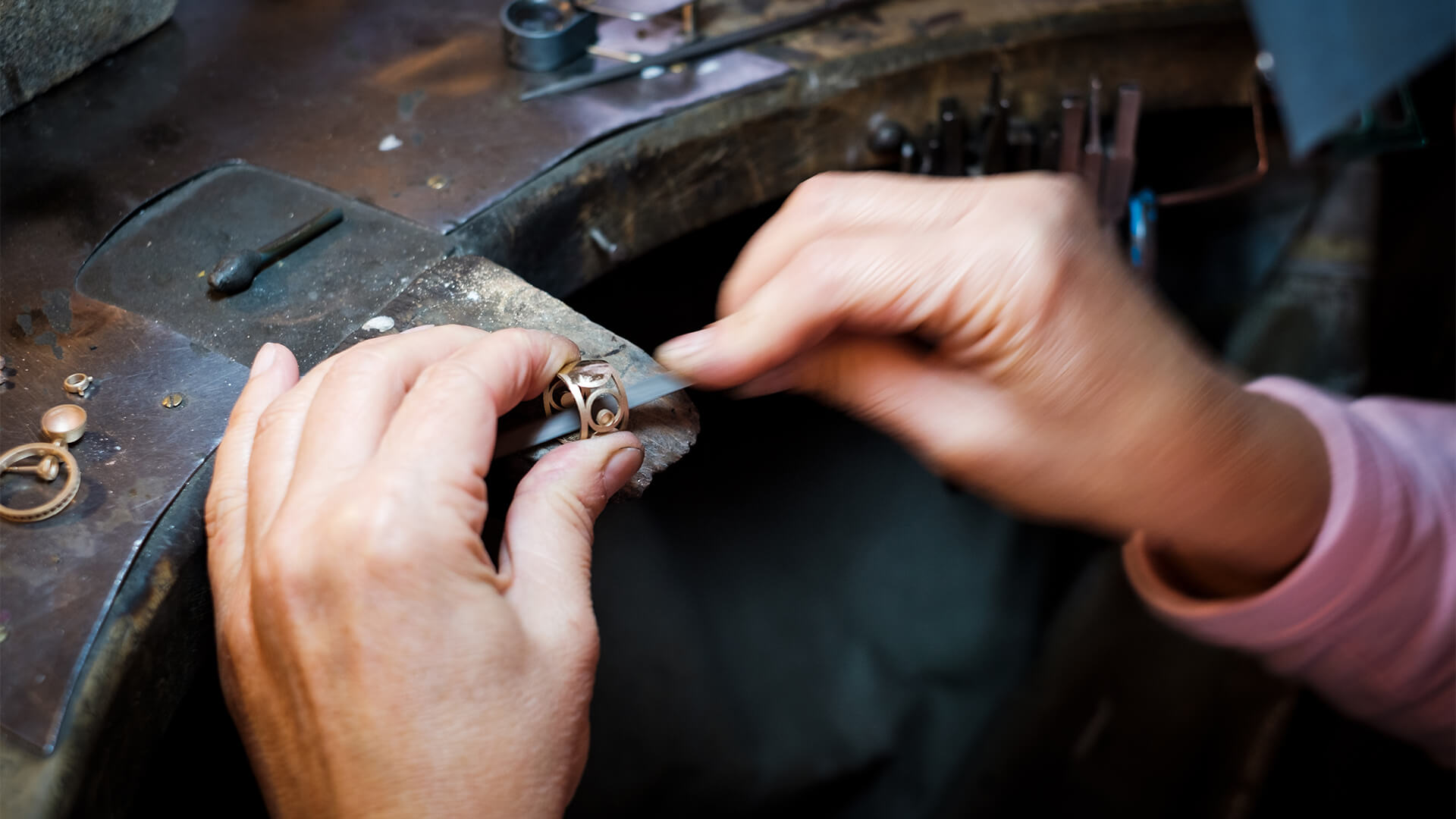
Jewelry is seen as a significant purchase for the average American. Since income level largely determines the likelihood of a jewelry purchase, any household under $150,000 (81.4% of the population) may buy from a jeweler once in their lifetime. Even luxury households need to consider the many benefits of choosing a quality jeweler for all of their rings and necklaces.
How to Choose a Jeweler: 9 Steps to Find the Best
It’s a good idea to avoid chain shops if you want the best jewelry selection. For example, Diamondere’s entire catalog, including emerald rings for women, is crafted by the most experienced certified jewelers who can customize your order to suit your personal needs.
To find other jewelers in your area, follow these steps to help guide your search.
1. Recommendations
Ask your family and friends where they bought their jewelry, as they can offer a good barometer for where to start. Your close social group, acquaintances, and co-workers are often more than happy to brag about their favorite jewelers, shops, and their jewel-encrusted pieces.
2. Better Business Bureau
Before advancing to any other step, search the business’s name on the Better Business Bureau (BBB) website. Companies that meet BBB standards are trustworthy and treat the public in a fair, honest manner. Jewelers must maintain a B or higher to maintain BBB accreditation.
3. Online Reviews
Start looking at online reviews to narrow down your choices. Customers who love what a business offers will leave a positive online review, especially if they went above and beyond. Keep in mind that a few negative reviews may not indicate lousy business practices.
4. Education
Legitimate jewelers don’t require an advanced degree (although it helps). Still, many design and trade schools will offer programs that teach students how to repair jewelry, set stones, or work with different technology. To enter this program, they need a high school diploma. Ask the jeweler if they’ve acquired knowledge in the subject before putting your trust in their work.
5. Advanced Education
While most jewelers won’t need to be educated by the American Gem Society or Gemological Institute of America, the best jewelers are accredited by these schools. A GG or Graduate Gemologist can provide more expert designs, but so can an RJ, CG, CJAP, or CSA.
6. Services
Before purchasing, ask the jeweler what services they offer if you buy the product. Look for offerings like free yearly cleaning, inexpensive or free repairs on damaged gems, or an updated appraisal. Great jewelers want to make lifelong loyal customers who promote their services.
7. Gem Certificates
You should always ask for certification for the jewelry you’re about to buy, but not from the jeweler themselves. It’s easy for a jewelry store to pull a fast one on you and create a fake gem certificate in-house, so only ask for a third-party representative to certify your purchase. The Gemological Institute of America and the American Gem Society are trustworthy appraisers.
8. Warranties
All jewelers should offer an extended warranty on your purchases because they ease the customers’ fears if something goes wrong. Most warranties will include plating or returns after a certain period, but if the contract looks too complicated, that’s usually a bad sign. Jewelers shouldn’t try to confuse you with lawyer-speak or place strict guidelines on warranties or returns.
9. Go With Your Gut
After extensive research, you may be left with a list of great jewelers that suit your needs. At that point, you’ll need to go with your gut and stick with a jeweler that you feel comfortable with. A jeweler that gives you a bad vibe or refuses to answer questions shouldn’t be considered, even if they seem trustworthy. Your comfort should override the logistics every time.



















